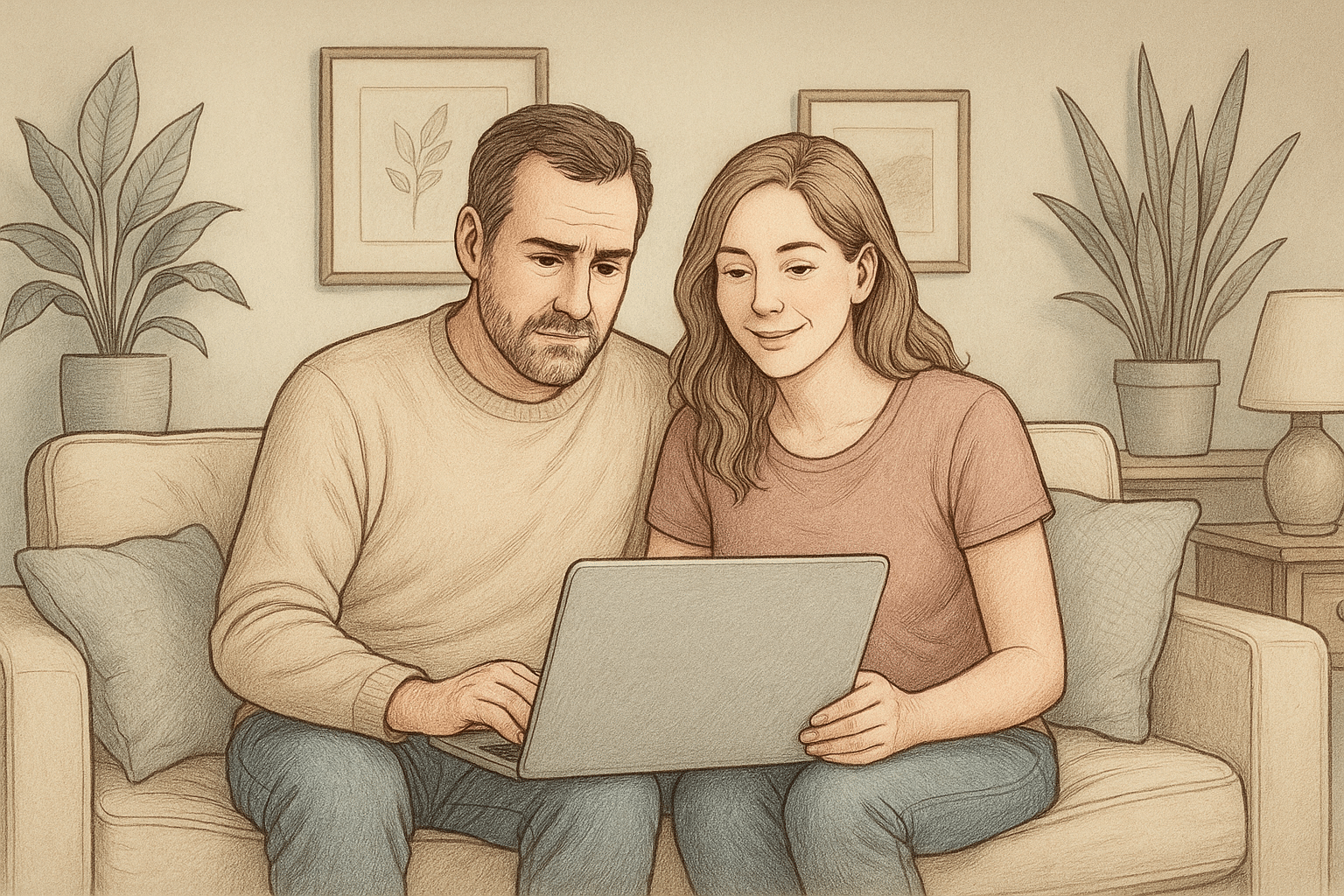Key Takeaways
- BCBS mental health copays typically range from $10 to $50 per session, depending on your specific plan.
- HMO plans generally have lower copays but require you to see in-network providers, while PPO plans offer more flexibility at a higher cost.
- Using Health Savings Accounts (HSAs) or Flexible Spending Accounts (FSAs) can ease the financial burden of copays.
- Understanding your plan’s details can help you anticipate out-of-pocket costs and manage your mental health expenses better.
- Mission Prep Healthcare helps families get a better grasp of their insurance benefits and find affordable treatment solutions for teen mental health services.
BCBS Mental Health Copay Overview
Blue Cross Blue Shield (BCBS) has a range of plans that include mental health coverage, but the copay amounts can vary widely. Knowing what to expect can help you make informed decisions about your mental health care and manage your budget effectively.
Understanding Copay Basics
A copay is a fixed amount you pay for a health care service, usually at the time you receive the service. For mental health services, this could mean paying a copay for each therapy session or psychiatric visit. The copay is part of your overall insurance plan, designed to share the cost of care between you and your insurer.
Additionally, copays are different from deductibles and coinsurance. A deductible is the amount you pay for covered health care services before your insurance plan starts to pay. Coinsurance, on the other hand, is your share of the costs of a covered health care service, calculated as a percentage of the allowed amount for the service. Understanding these terms can help you navigate your insurance plan more effectively.
- Copay: Fixed amount per visit.
- Deductible: Amount paid before insurance kicks in.
- Coinsurance: Percentage of service cost after the deductible is met.
For example, if your BCBS plan includes a $20 copay for therapy sessions, you will pay $20 each time you visit your therapist. This copay is due regardless of whether you have met your deductible.
Why Mental Health Copays Vary
Now, you might wonder why copays vary from plan to plan. Several factors come into play, including the type of BCBS plan you have, the network of providers, and even your geographic location. Additionally, some plans may offer lower copays for in-network providers, encouraging you to choose therapists and doctors who have agreed to pre-negotiated rates with BCBS.
Besides that, the specific mental health services you require can also influence copay amounts. For example, a standard therapy session might have a different copay compared to a specialized treatment or group therapy session. Therefore, review your plan’s summary of benefits to understand the specific copays associated with different services.
| Mission Prep Healthcare: Adolescent Mental Health Care Mission Prep Healthcare specializes in mental health treatment for teens aged 12-17, offering residential and outpatient programs for anxiety, depression, trauma, and mood disorders. Our therapies include CBT, DBT, EMDR, and TMS, tailored to each adolescent’s needs. With a structured, supportive environment, we integrate academic support and family involvement to promote lasting recovery. Our goal is to help teens build resilience and regain confidence in their future. Start your recovery journey with Mission Prep Healthcare today! |
Breakdown of BCBS Mental Health Copay
Typical Copay Amounts
The copay for mental health services under BCBS plans typically ranges from $15 to $50 per session. This range varies based on the plan type and provider network status. For example, in-network providers generally have lower copays compared to out-of-network ones.
To illustrate, a BCBS HMO plan might require a $20 copay for in-network mental health visits, while a PPO plan might have a $40 copay for the same service.

Review your specific plan details to understand the copayments you are responsible for.
Factors Influencing Copay Costs
Besides the plan type and provider network status, other factors can influence copay costs. Your location plays a role, as does the specific mental health service you are receiving. For example, a standard therapy session might have a different copay compared to a specialized psychiatric consultation.
Also, BCBS may offer different copay structures for various mental health treatments, such as individual therapy versus group therapy. Understanding these distinctions can help you make informed decisions about your mental health care and budget accordingly.
Comparing BCBS Plans for Mental Health Coverage

Choosing the right BCBS plan for your teen’s mental health needs involves comparing the different options available.
HMO vs. PPO Plans
BCBS offers both HMO (Health Maintenance Organization) and PPO (Preferred Provider Organization) plans, each with distinct features and copay structures. HMOs generally require you to use a network of providers and often have lower copays. However, they may require referrals for specialist visits, including mental health services.
PPO plans offer greater flexibility in choosing providers, allowing you to see out-of-network providers at a higher copay. This can be beneficial if you have a preferred therapist or psychiatrist who is not in the BCBS network.
Network Providers vs. Out-of-Network Costs
One of the key considerations when using BCBS for mental health services is understanding the difference between network providers and out-of-network costs. In-network providers have a contract with BCBS to offer services at a negotiated rate, which often results in lower copays for you. This means that when you visit an in-network therapist or psychiatrist, you can expect to pay the standard copay outlined in your plan.
On the other hand, choosing an out-of-network provider usually results in higher out-of-pocket costs. This is because BCBS does not have a pre-negotiated rate with these providers, and they can charge their standard rates. Consequently, your copay will be higher, and you might also be responsible for additional fees not covered by your insurance. Therefore, it’s a good idea to check if your preferred mental health provider is in-network to avoid unexpected expenses.
Strategies to Manage Mental Health Copays
Using FSA or HSA Accounts
If you have access to a Flexible Spending Account (FSA) or a Health Savings Account (HSA), consider using these funds to pay for your mental health copays. These accounts allow you to set aside pre-tax dollars for eligible medical expenses, including copays for therapy sessions. This can reduce your taxable income and make your out-of-pocket costs more manageable.
Checking for Sliding Scale Options
Some mental health providers offer sliding scale payment options based on your income. This means that the cost of your therapy sessions could be adjusted to fit your financial situation. It’s worth asking your therapist or potential providers if they offer this option, especially if you’re concerned about the affordability of regular sessions.
Exploring Additional BCBS Assistance Programs
BCBS may offer additional assistance programs for mental health services. These programs can include discounts on services, support for finding in-network providers, or even wellness programs that focus on mental health. Contacting BCBS directly or checking their website can provide more information on what assistance might be available to you.
Additionally, staying informed about your plan’s specific benefits and any updates or changes can help you take full advantage of your mental health coverage. Regularly reviewing your plan details ensures that you’re aware of all available resources and support.
Understanding Exclusions and Limits
Common Exclusions in Coverage
Some common exclusions in BCBS mental health coverage include services like couples therapy, unless deemed medically necessary, or certain types of alternative therapies such as acupuncture. Understanding these exclusions can help you plan for any additional costs you might need to cover out of pocket.
Session Limits and Their Impact
Many BCBS plans have limits on the number of therapy sessions covered each year. For example, your plan might cover up to 20 sessions annually. Exceeding this limit could mean paying the full cost for additional sessions. Therefore, track your usage and plan your therapy schedule accordingly.
Processing BCBS Mental Health Coverage with Mission Prep
At Mission Prep Healthcare, we recognize that processing insurance coverage shouldn’t be an additional burden during an already challenging time. Our dedicated team of insurance specialists works directly with your insurance provider to verify benefits, explain copays, and identify potential out-of-pocket costs before treatment begins.

Mission Prep specializes in providing safe, evidence-based mental health treatment for teens struggling with anxiety, depression, and other mental health concerns.
Unlike standard outpatient therapy that may quickly exhaust BCBS session limits, our comprehensive programs are designed to maximize your insurance benefits while delivering the intensive support your teen needs.
When you choose Mission Prep, you’re not just getting treatment; you’re gaining a partner who understands the complexities of BCBS mental health coverage. Our admissions team will help you understand network status, copay structures, and coverage limitations, ensuring financial concerns never stand in the way of your teen’s recovery.
With most major insurances accepted and private pay options available, we’re committed to making quality mental health care accessible. Don’t let insurance confusion delay essential care. Contact us today to verify your BCBS coverage and take the first step toward your teen’s mental health journey.
Frequently Asked Questions (FAQ)
How can I determine my BCBS plan’s copay for mental health?
You can find your plan’s copay information by reviewing your Summary of Benefits, which is typically available through your BCBS online account. Alternatively, you can contact BCBS customer service for specific details about your copay amounts for mental health services.
Can I negotiate my copay with my provider?
While copays are generally set by your insurance plan, some providers may offer payment plans or sliding scale options based on your financial situation. It’s worth discussing your concerns with your provider to see if any accommodations can be made.
Are telehealth mental health sessions covered by BCBS?
Many BCBS plans do cover telehealth mental health sessions, often at the same copay rate as in-person visits. This can be a convenient option for accessing care from the comfort of your home. Be sure to confirm with BCBS and your provider to ensure telehealth services are covered under your specific plan.
Telehealth can offer flexibility and accessibility, making it an excellent choice for those with busy schedules or limited transportation options.
What if my provider is out-of-network?
If your provider is out-of-network, you may face higher copays or coinsurance rates. You might also need to pay the full cost upfront and seek reimbursement from BCBS. To minimize costs, consider finding an in-network provider through the BCBS provider directory.
What if my BCBS plan has session limits, but my teen needs longer-term treatment?
At Mission Prep Healthcare, we understand that mental health recovery doesn’t always align with insurance session limits. If your BCBS plan restricts the number of covered sessions, we can work with you to figure out alternative payment options, including private pay arrangements, sliding scale fees, or other financial assistance programs to ensure your teen receives the complete care they need.
















